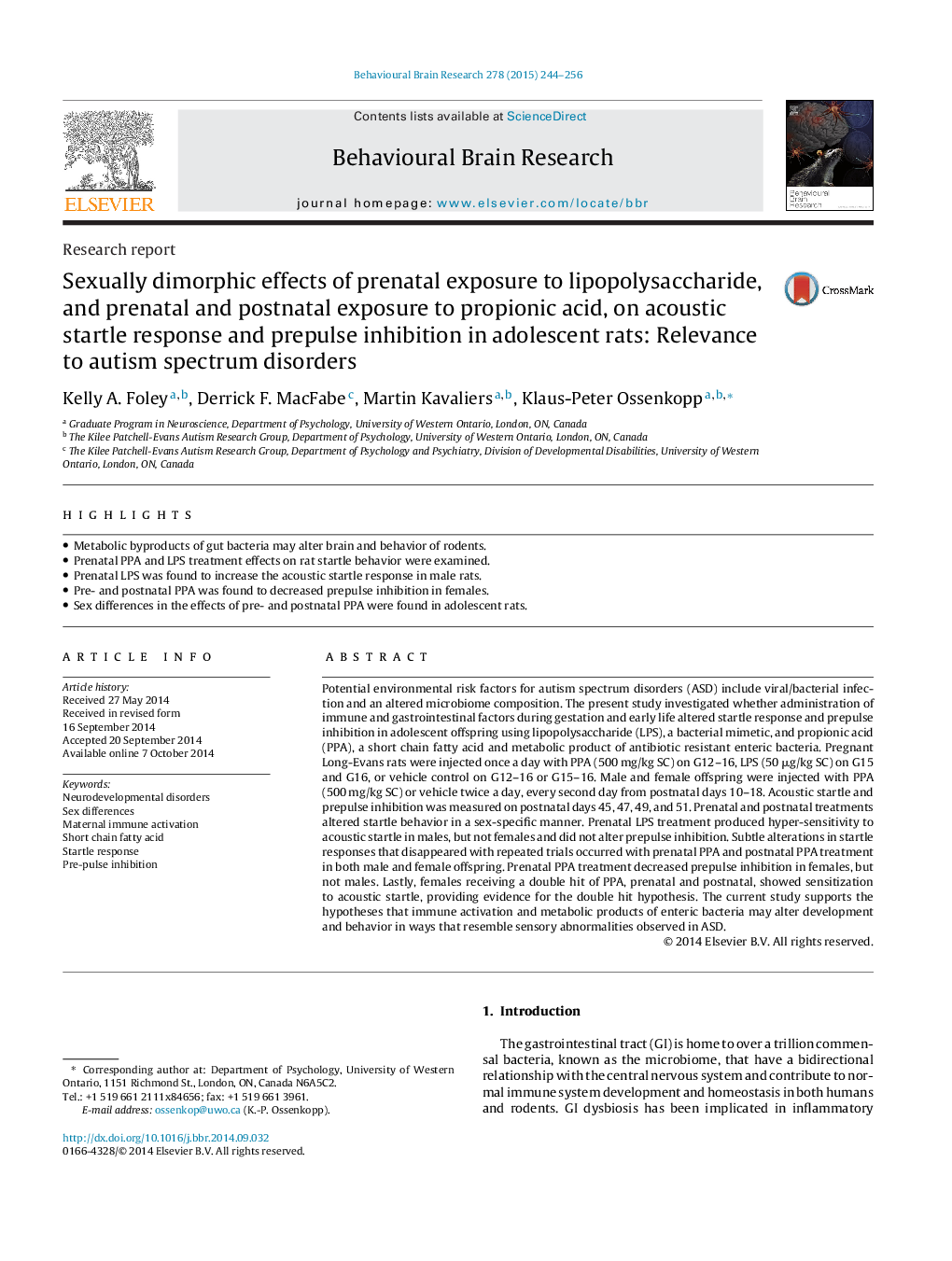| Article ID | Journal | Published Year | Pages | File Type |
|---|---|---|---|---|
| 6257599 | Behavioural Brain Research | 2015 | 13 Pages |
â¢Metabolic byproducts of gut bacteria may alter brain and behavior of rodents.â¢Prenatal PPA and LPS treatment effects on rat startle behavior were examined.â¢Prenatal LPS was found to increase the acoustic startle response in male rats.â¢Pre- and postnatal PPA was found to decreased prepulse inhibition in females.â¢Sex differences in the effects of pre- and postnatal PPA were found in adolescent rats.
Potential environmental risk factors for autism spectrum disorders (ASD) include viral/bacterial infection and an altered microbiome composition. The present study investigated whether administration of immune and gastrointestinal factors during gestation and early life altered startle response and prepulse inhibition in adolescent offspring using lipopolysaccharide (LPS), a bacterial mimetic, and propionic acid (PPA), a short chain fatty acid and metabolic product of antibiotic resistant enteric bacteria. Pregnant Long-Evans rats were injected once a day with PPA (500 mg/kg SC) on G12-16, LPS (50 μg/kg SC) on G15 and G16, or vehicle control on G12-16 or G15-16. Male and female offspring were injected with PPA (500 mg/kg SC) or vehicle twice a day, every second day from postnatal days 10-18. Acoustic startle and prepulse inhibition was measured on postnatal days 45, 47, 49, and 51. Prenatal and postnatal treatments altered startle behavior in a sex-specific manner. Prenatal LPS treatment produced hyper-sensitivity to acoustic startle in males, but not females and did not alter prepulse inhibition. Subtle alterations in startle responses that disappeared with repeated trials occurred with prenatal PPA and postnatal PPA treatment in both male and female offspring. Prenatal PPA treatment decreased prepulse inhibition in females, but not males. Lastly, females receiving a double hit of PPA, prenatal and postnatal, showed sensitization to acoustic startle, providing evidence for the double hit hypothesis. The current study supports the hypotheses that immune activation and metabolic products of enteric bacteria may alter development and behavior in ways that resemble sensory abnormalities observed in ASD.
